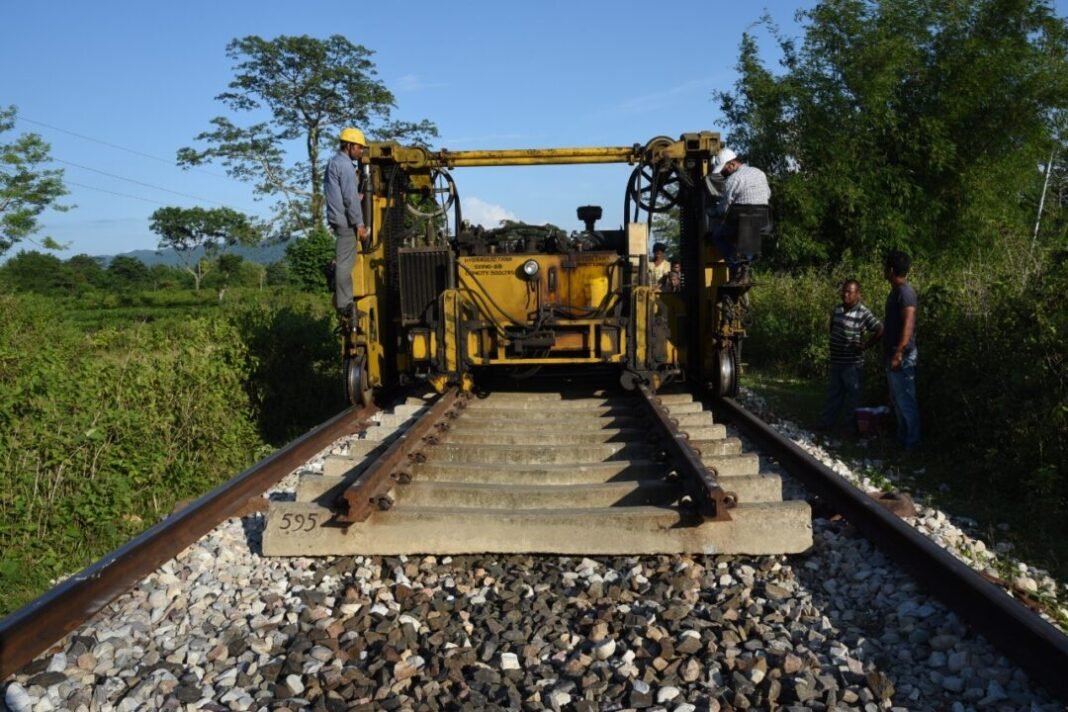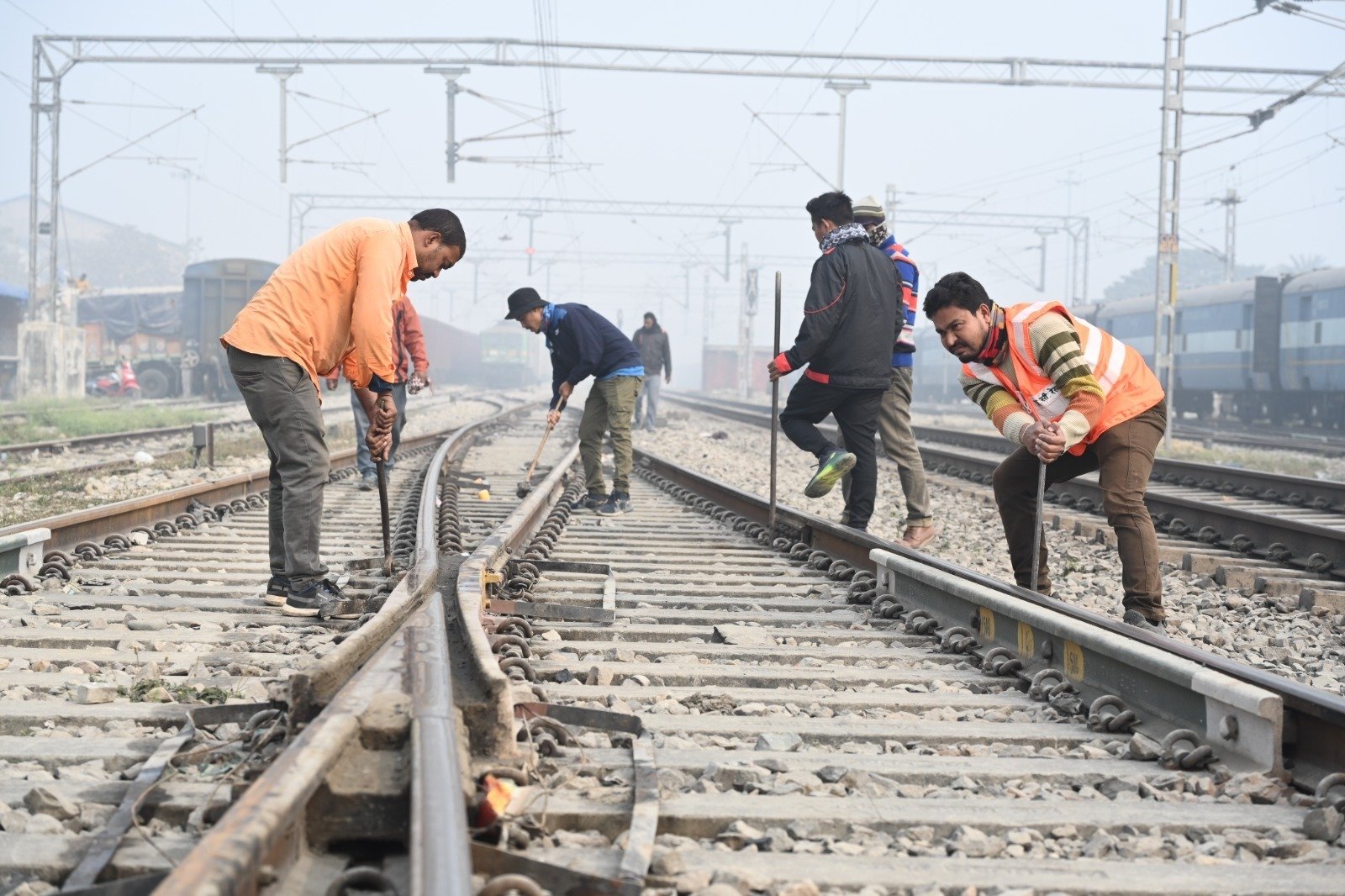HT Bureau
GUWAHATI, April 27: In a bid to enhance safety of railway track and provide safer travel to rail passengers, Northeast Frontier Railway registered record progress rate in rail and sleeper renewal during the financial year 2021-22. NF Railway achieved a remarkable progress of 327.65 km of rail renewal works in 2021-22 as against 200.29 km done during 2020-21. This is an increase of 63.59%. Thorough sleeper renewal works have been done over a length of 112.98 km in 2021-22, which is also the highest ever progress achieved by NFR. Previous year’s performance was 58.8 km.
Moreover, NF Railway has carried out several more track maintenance works to enhance safety and increase speed of train running. Turnout renewals of 145.75 equivalent sets have been done in 2021-22 against last year’s performance of 111 equivalent sets. Tamping of 3,585 turnouts were done while track stabilisation of 2,635.54 km was completed in 2021-22.
In addition, for smooth operations of trains, 273.44 km plain tracks have been deep screened in 2021-22 against last year’s performance of 177.68 km. Plain track tamping of 6,842.98 km have been completed in 2021-22 against a target of 6,108.40 km. A total of 5.03 lakhs of ballast supply has been done in 2021-22 against 2.96 lakhs supplied last year.
Moreover, 18690.62 kilometres of track have been tested by the USFD (Ultra Sonic Flaw Detection) machine in 2021-22 against last year’s performance of 16105.79 kilometres. USFD technique is carried out to detect flaws like cracks and timely removal of defective rails for safety. 16 nos. of permanent speed restrictions have also been removed in 2021-22 to enhance speed in train running.
NFR is focusing on upgrading track renewal for safe operations of train services. Railway tracks are replaced through track renewal works which is an ongoing process. Track renewal works are undertaken as and when a stretch of track becomes due for renewal on the basis of set criteria. The process of track renewal with the help of track machines saves time and good quality work can be achieved in the least possible time with minimal effect of normal train movement.







